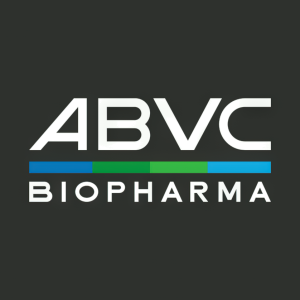ABVC BioPharma Announces New PCT Filings for MDD and ADHD Treatments
ABVC BioPharma has announced the filing of new PCT applications aimed at protecting its medicines for treating major depressive disorder (MDD) and ADHD. The applications relate to the oral administration of Radix Polygalae extract (PDC-1421), the active ingredient in both drugs. A Phase II clinical study for the MDD treatment showed a significant reduction in depression scores compared to placebo. CEO Dr. Howard Doong highlighted the strategic importance of these filings for extending global market exclusivity to 2040~2041.
- None.
- None.
Insights
Analyzing...
FREMONT, CA, Sept. 01, 2021 (GLOBE NEWSWIRE) -- via NewMediaWire – ABVC BioPharma, Inc. (NASDAQ: ABVC), a clinical stage biopharmaceutical company developing therapeutic solutions in oncology/hematology, CNS, and ophthalmology, today announced it has filed new PCT (Patent Cooperation Treaty) applications in connection with its medicines that treat major depressive disorder (MDD) and Attention-Deficit Hyperactivity Disorder (ADHD). The two PCT applications describe the treatment methods of oral administrating compositions containing Radix Polygalae (Polygala tenuifolia Willd) extract (PDC-1421). PDC-1421 is the active ingredient for both the company’s MDD and ADHD drugs.
A recently completed Phase II Part II clinical study for ABVC’s MDD medicine was a randomized, double-blind, placebo-controlled, multi-center trial, involving 60 adult patients with confirmed moderate to severe MDD who were treated with PDC-1421 three times a day for six weeks. PDC-1421 met the pre-specified primary endpoint by demonstrating a highly significant 13.2-point reduction in the Montgomery-Åsberg Depression Rating Scale (MADRS) total score by Intention-To-Treat (ITT) analysis, averaged over the 6-week treatment period (overall treatment effect) from baseline, as compared to 9.2-point reduction of the placebo group. By Per-Protocol (PP) analysis, PDC-1421 showed a dose dependent efficacy toward MDD in which high dose (2 x 380 mg) gave 13.4-point reduction in MADRS total score from baseline and low dose (380 mg) gave 10.4-point reduction as compared to 8.6 in the placebo group. The patients exhibited no severe adverse events.
“We believe that the PCT filings, which provide quick entries to PCT contracting countries, such as China, Japan and European Union, can facilitate the global IP protection of our important MDD and ADHD products,” said Dr. Howard Doong, ABVC BioPharma chief executive officer. “The PCT’s and subsequent national phase applications, when granted, can extend our product’s global market exclusivity to 2040~2041.”
Dr. Doong emphasized the importance of ABVC BioPharma’s focus on botanical sourcing in drug development. “Our clinical trials continue to demonstrate that medicines derived from plants have significant therapeutic benefits with few - if any - side effects in treating serious medical conditions.”
About ABVC BioPharma
ABVC BioPharma is a clinical-stage biopharmaceutical company with an active pipeline of six drugs and one medical device (ABV-1701/Vitargus®) under development. For its drug products, it is focused on utilizing its licensed technology to conduct proof-of-concept trials through Phase II of the clinical development process at world-famous research institutions (such as Stanford University, University of California at San Francisco, and Cedars-Sinai Medical Center). For Vitargus®, the company intends to conduct the clinical trials through Phase III at various locations throughout the globe.
Forward-Looking Statements
Clinical trials are in early stages, and there is no guarantee that any specific outcome will be achieved. This press release contains “forward-looking statements.” Such statements may be preceded by the words “intends,” “may,” “will,” “plans,” “expects,” “anticipates,” “projects,” “predicts,” “estimates,” “aims,” “believes,” “hopes,” “potential,” or similar words. Forward-looking statements are not guarantees of future performance, are based on certain assumptions, and are subject to various known and unknown risks and uncertainties, many of which are beyond the Company’s control, and cannot be predicted or quantified, and, consequently, actual results may differ materially from those expressed or implied by such forward-looking statements. Such risks and uncertainties include, without limitation, risks and uncertainties associated with (i) our inability to manufacture our product candidates on a commercial scale on our own, or in collaboration with third parties; (ii) difficulties in obtaining financing on commercially reasonable terms; (iii) changes in the size and nature of our competition; (iv) loss of one or more key executives or scientists; and (v) difficulties in securing regulatory approval to proceed to the next level of the clinical trials or to market our product candidates. More detailed information about the Company and the risk factors that may affect the realization of forward-looking statements is set forth in the Company’s filings with the Securities and Exchange Commission (SEC), including the Company’s Annual Report on Form 10-K and its Quarterly Reports on Form 10-Q. Investors are urged to read these documents free of charge on the SEC’s website at http://www.sec.gov. The Company assumes no obligation to publicly update or revise its forward-looking statements as a result of new information, future events or otherwise.
Contact:
Andy An – Chief Financial Officer
765-610-8826
andyan@ambrivis.com








